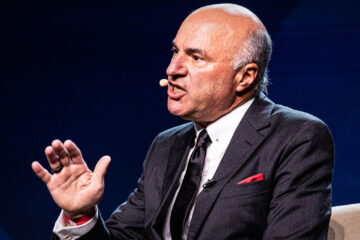A hearing for the fallen king of crypto is scheduled for January 3 in Manhattan federal court.
Sam Bankman-Fried will start 2023 as he ended 2022: in court.
The fallen former king of crypto is at the heart of one of the biggest scandals the young blockchain-powered financial services industry has ever seen.
The regulators filed a series of criminal and civil charges against Bankman-Fried, whom they accuse of alleged fraud, on December 13.
Justice Department prosecutors filed eight criminal counts against the former trader. Four of the charges, including conspiracy to commit wire fraud on customers and lenders and wire fraud, indicate that the alleged acts began as early as 2019. This is the year FTX was founded.
“Bankman-Fried was orchestrating a massive, yearslong fraud, diverting billions of dollars of the trading platform’s customer funds for his own personal benefit and to help grow his crypto empire,” the SEC alleges in its civil complaint.
Bankman-Fried’s crypto empire imploded within days on November 11 after being at the center of the crypto industry. This empire was made up of the FTX cryptocurrency exchange and its sister company Alameda Research, a hedge fund that also served as a trading platform for institutional investors.
The regulators are trying to piece together what happened, and especially how FTX, which was valued at $32 billion in February, could implode overnight.
Not Guilty
A hearing is scheduled for January 3 in federal court in Manhattan. During this hearing, Bankman-Fried should plead not guilty to the eight offenses, according to several media including the Wall Street Journal and Bloomberg News.
If there’s no last-minute flip-flop, this line of defense wouldn’t be a real surprise, and doesn’t mean Bankman-Fried couldn’t later change position. A no guilty plea should lead to the start of the discovery process, which would allow Bankman-Fried and his lawyers to have access to certain evidence that the government has collected against him.
Some of this evidence is the testimony of two former lieutenants of Bankman-Fried, who agreed to cooperate in exchange for the leniency from the regulators.
Zixiao (Gary) Wang, 29, FTX co-founder and former Chief Technology Officer, and Caroline Ellison, 28, the former CEO of Alameda Research, pled guilty, on Dec. 19, to multiple federal fraud charges and agreed to cooperate with prosecutors.
“I knew that it was wrong,” Ellison said about her actions, according to a transcript of her plea hearing released on Dec. 23. This is what she told a federal judge in Manhattan on Monday in entering her guilty plea, according to a transcript of the hearing that was unsealed.
“I knew what I was doing was wrong,” Wang also said, according to the transcript of his guilty plea.
As a crypto exchange, FTX executed orders for clients, taking their cash and buying cryptocurrencies on their behalf. FTX acted as a custodian, holding the clients’ crypto.
A $250 Million Bail Package
FTX then used its clients’ crypto assets, through its sister company’s Alameda Research trading arm, to generate cash through borrowing or market-making. The cash FTX borrowed was used to bail out other crypto institutions in summer 2022.
At the same time, FTX was using the cryptocurrency it was issuing, FTT, as collateral on its balance sheet. This was a significant exposure, due to the concentration risk and the volatility of FTT.
The insolvency of FTX stemmed from a liquidity shortfall when clients attempted to withdraw funds from the platform. The shortfall appears to have been the result of Bankman-Fried allegedly transferring $10 billion of customer funds from FTX to Alameda Research.
“I made a lot of mistakes,” Bankman-Fried said during his first interview with the New York Times/DealBook on Nov. 30. “There are things I would give anything to be able to do over again. I didn’t ever try to commit fraud on anyone.”
SBF was extradited to the United States on Dec. 21 by the authorities of the Bahamas, where he lived and where FTX is headquartered. He was released after his parents, both law professors at Stanford, signed a $250 million recognizance bond pledging their California home as collateral. Two other friends with significant assets also signed, according to news reports.


